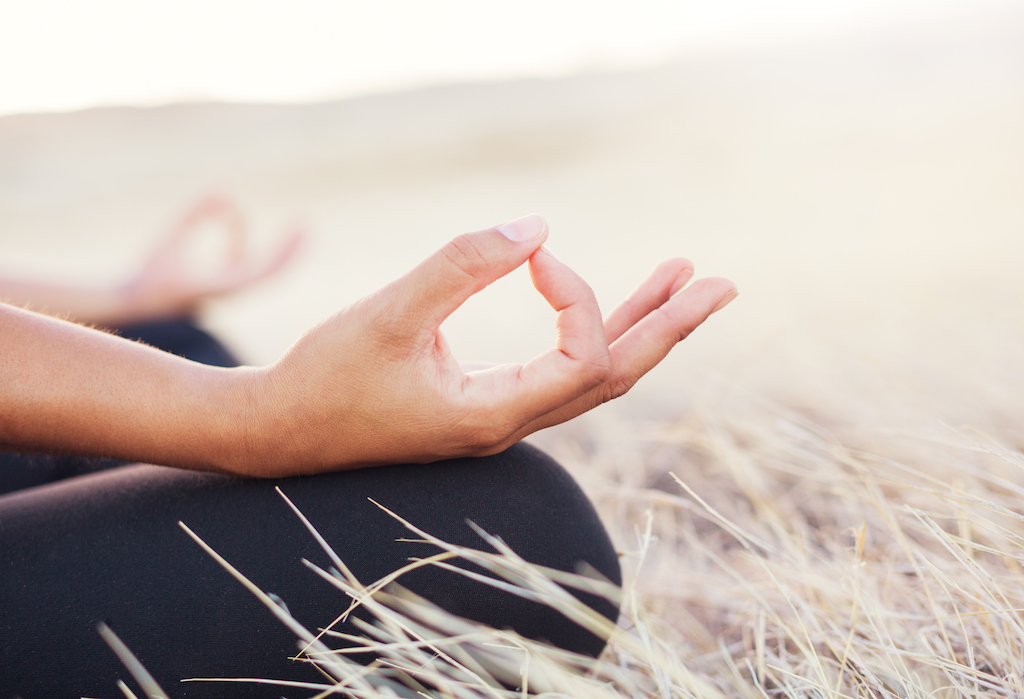SingaporeMotherhood | Parenting
September 2017
Why Meditation is Good for Mothers (but especially for New Mums)

Operating with less sleep, learning how to breastfeed, dealing with the pain from stitches… the learning curve for new mums is a steep one indeed and anything that can help make those early blurry days better is welcome. Enter meditation.
“My nipples are sore, I have to wear two maternity pads because of post-delivery bleeding, my perineal wound still hurts, I have no freaking idea what to do when the Baby cries… aaaaaanaaaannnnnnd you think I should meditate!?”
[banner][/banner]
That’s probably what I would have screamed (while lobbing breast pads and diapers) if anyone had dared breathe that ‘m’ word to me during those heady, unsteady new mum days. But guess what? It’s exactly these heady, unsteady new mum experiences that meditation can help with, say advocates of the practice.
“I would recommend meditation for everyone because meditation offers countless benefits such as stress relief, a stronger mind-body connection, and improved focus,” says yoga master Sriman Japadas from the now-defunct Singapore School of Meditation and Yoga. Indeed, the benefits of meditation are well-known, and the practice has its fans — from ministers to monks and yes, mothers as well.
Motherhood can be a demanding and exhausting, especially for new mums. When your time and effort is fixated on your newborn, you do not have enough resources to focus on yourself. Meditation allows mothers to have some quiet time to reconnect with who they are and to relieve their daily stresses, Japadas says.
So give yourself a break from soiled diapers and breast pumps. From homework and tantrums. From picky eaters and parent chat groups.
Meditate.
Here’s what Japadas recommends:
1. Do it daily
Ideally, you should meditate on a daily basis. When you are first starting out, it may be hard to get into a relaxed state of mind to meditate. It might good if you can meditate for about 15 minutes, and slowly build it up to an hour daily. The best time to meditate is early in the morning when you wake up. This is because your mind is clearest at this time of the day, allowing you to meditate without any distractions or a busy mind.
2. Do it in a Quiet Space (if you have one)
The best is to meditate in a quiet room by yourself, away from any distractions. However, the reality of the situation is that it’s often hard to find such a space on a daily basis. All you really need is some quiet time to yourself to focus. It can even be in a corner of your room, or even at the back of a bus, where you focus quietly on your breathing.
3. Let Baby’s Crying be part of your Meditation
Even if you try to insulate your practice by finding the quietest spot in the house, there is a risk that your crying baby may interrupt you. The obvious course of action, especially when you don’t have help in the house, is to check on your baby and continue your practice later.
However, there’s no need to be frustrated. See the interruption as part of your practice. You will notice certain reactions building up – irritation and resentment, for instance. That’s normal. Acknowledge whatever you are feeling. Don’t try to change or push it away.
Bring awareness to the chain of thoughts and feelings that arise within you at this moment. The more you are able to do that, the more they will take care of themselves. Don’t resist the moment and don’t allow yourself to be consumed by it. Be okay with your resentment.
4. Watch your Breast Milk production Increase
According to the book The Breastfeeding Mothers Guide to Making More Milk, the nervous pathways for milk production run through the emotion-processing area of the brain. As the brain and body are closely connected, and as meditation helps one’s state of mind, meditating can in fact help one to aid breast milk production and facilitate breastfeeding.
5. Remain Open to Learning
a. Attend a meditation class to learn the basics
There are free meditation classes in Singapore. Google for them and attend them. You’ll be able to get proper guidance during your meditation and learn actual meditation techniques that you can use anywhere.
b. Incorporate your meditation exercises in the morning
When you’re just starting, it’s better to practice meditation in the morning before you get thrown into the hustle and bustle of daily life. Meditating in the morning will help you focus and prepare yourself mentally for the day’s work. For beginners, I would advise practicing it at a time before you typically gets distracted by your daily routines. As you progress in your practice, however, you will find that you can do it comfortably anytime and anywhere.
c. Don’t overthink it
In our daily lives, we subject ourselves to deadlines and strict and tangible measurements, so it’s natural for a beginner to want to measure themselves against a certain perceived standard and rush to get there. However, this would actually be counterproductive, and you would lose the very essence of meditating. Take your time, and remember to breathe.
d. Do not try to stop your thoughts
Some people think that meditation will allow you to “stop your thoughts”, especially negative ones. However, what meditation trains you to do is to focus your thoughts by first focusing on your breathing, your body, and your practice. Every thought you have is valid, and you should not treat meditation as a means to escape these thoughts.
e. Do not compare your practice with others
Meditation is a personal journey. It’s like reading a book about yourself – you shouldn’t compare who you are to someone else, as it will only serve to distract you from true self-discovery.
All together now, breathe.
All content from this article, including images, cannot be reproduced without credits or written permission from SingaporeMotherhood.
Follow us on Facebook, Instagram, and Telegram for the latest article and promotion updates.








